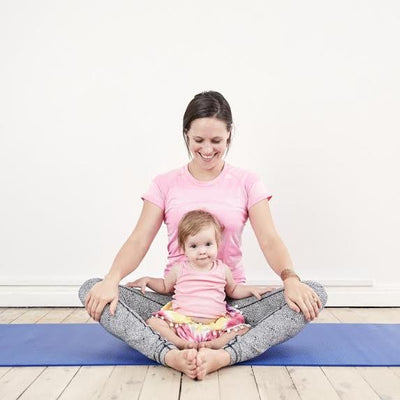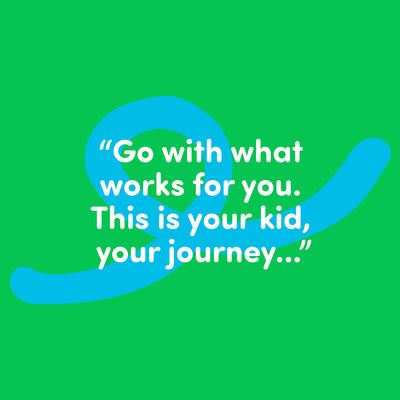If there’s one thing that four days of home-schooling has taught all parents it’s that school teachers are saints. (And that your stash of bribery snacks can never run low.) Amy Gower is a K-6 teacher who is also a mum (to the very adorable, almost-two-year-old Gracie), so naturally when we chatted to her, we wanted to bottle her patience and sell it for $1,000,000. Instead, we just asked her: How the heck are you making it work?

“As a teacher (who's also a parent!), when I’m home with Gracie, there’s a lot of imaginary play that also incorporates fine and gross motor skills. (I’m always considering language development during these experiences, too!)
We do things like feeding and putting her baby dolls to sleep, cooking in her toy kitchen, dressing up and going to the shops with a handbag, grabbing the keys and driving her toy car, then getting groceries with a basket, and having tea parties.
She loves to copy whatever I'm doing! And that includes “helping” with things around the house. If I’m cleaning up, I’ll give her a dustpan and broom or a cloth, so she can join in, too.
When we get the chance to go outdoors, Gracie’s riding her toy bike, playing in the sandpit, throwing the ball for the dogs, kicking her own balls or shooting them through her mini basketball hoop. We’ll also water play on the top step of the pool, if it’s sunny and warm.
Gracie has so many toys! We build towers with blocks, read books, jump into bean bags, play toy instruments, do puzzles, sing and dance, draw, colour in or paint – all of these activities are really beneficial for fine and gross motor skills and language and vocab development.
At the moment, I’m focusing on both education and fun! Most kids thrive on structure and routine, so some ‘formal’ learning activities (perhaps that schools are providing) are helpful. But school or daycare is also about developing social skills and being active, and if kids are missing these playground interactions, it's important they have opportunities for their brains to rest and for them to play.
The most important thing is making sure everyone is feeling happy and safe (and that includes parents, too). Remember, lots of numeracy and literacy skills can be explored incidentally just through normal daily activities!”
Amy’s ideas for young kids who are stuck at home...
- Involve them in what you're doing. Joining in cooking can provide opportunities for vocab and maths with measuring, timing, describing the texture/smell/look of ingredients at different stages and what you're doing with them.
- If you have a garden, explore it. Gardening is terrific for using the senses, and it can lead to some research on plants and how to care for them.
- Engage their senses in a fun way. Try water play in the pool or bath, or grab a large container and create your own sensory bin using different materials you have at home (we’ve been using jelly, since pasta is hard to come by!).
- Go on an epic treasure hunt. Leave clues that your kids can solve to find some hidden treasure.
- Encourage them to get moving. Go Noodle and Cosmic Yoga are both really fun websites where kids can copy the movements to exercise.
- Don’t ignore the classic (offline) fun! Playing family board games or hide and seek is great. Or try reading a book, then creating a play from it.
- If all else fails, there's always The Wiggles.




Comments